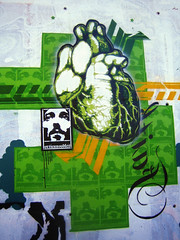I like having a personal wiki. I keep track of my personal projects, various GTD meta-stuff, and even tracking shared expenses with family and roommates. Originally, I used MoinMoin, a very easy-to-edit but powerful wiki clone written in Python. We’ve been using MoinMoin for several years (at least 3, I think) in our lab. It offers a straightforward syntax, ease of uploading attachments, and easy creation of tables (hard to find in wikis). MoinMoin was working pretty nicely, but its main downfall was that it was difficult to create new MoinMoin webs. Thus, if I wanted to have a wiki for my roommates, a wiki for my wife and I, a personal wiki, a wiki for a project with someone, and so on, I had to go through the tricky process of creating those and making them accessible through the web server.
Enter TWiki. TWiki promised to be a more powerful MoinMoin with the capacity for quickly creating new “webs”, or sub-wikis. TWiki’s syntax was unfortunately obtuse. It was possible to make it compatible with MoinMoin’s syntax, which I did, but I never worked all of the kinks out. Furthermore, it was more difficult to attach items in TWiki, and I found the interface very cluttered compared with MoinMoin. While I intended to make even heavier use of my TWiki than my MoinMoin site, in the end I used it less because it was inconvenient. Oh, and it requires you to log in every time you open a new browser window, which bothered the ever-living hell out of me. I hear they’re changing that in some CVS revision. Whatever.
These things are no longer an issue for me. I’m moving to Google Docs and Spreadsheets. It turns out that you can link from one google doc to another directly, which is the basic function of a wiki. Furthermore, google spreadsheets are (compared to wiki software) fantastically easier to use and more powerful. It’s possible to upload word, excel, openoffice spreadsheet, openoffice writer, text, html, and other files directly to google docs. It’s easy to share a google doc with one person, a few people, or even the entire internet, giving either read or read and write access to various people. Google docs can be grouped in multiple folders (tag-like), seen directly ranked by most-recent-edit in iGoogle, and accessed from pretty much anywhere. You can also download google docs in common file formats. I suspect soon complete offline access will be enabled with Gears a la Reader.
It has only been a week, but so far Google Docs as a wiki service is treating me well. Do you use it?
